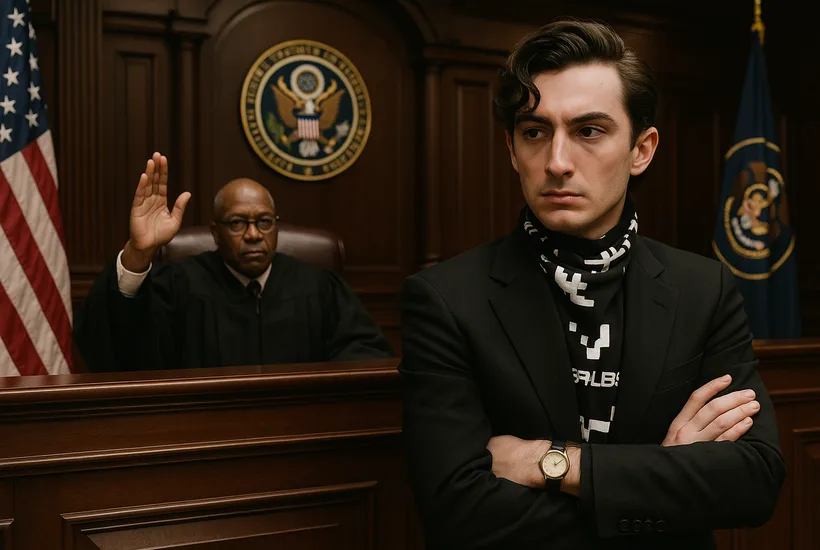- US Ninth Circuit Court of Appeals reverses Yuga Labs’ $9 million award against Ryder Ripps
- Court sends case back for trial on trademark infringement and cybersquatting claims
- Court rules that Yuga’s NFTs are considered “goods” under US trademark law
In a surprising turn of events, the US Ninth Circuit Court of Appeals has overturned the $9 million judgment awarded to Yuga Labs in its trademark infringement lawsuit against artist Ryder Ripps and business partner Jeremy Cahen. The decision, made on Wednesday, follows a lengthy legal battle regarding Ripps and Cahen’s NFT collection, which Yuga Labs claimed was a direct copy of its highly successful Bored Ape Yacht Club (BAYC) collection.
The appellate court ruled that Yuga Labs had failed to sufficiently prove that Ripps and Cahen’s collection, titled “Ryder Ripps Bored Ape Yacht Club”, was likely to confuse consumers. This marked a significant shift from a 2023 ruling, where a federal court had sided with Yuga, initially awarding it $1.6 million in damages, later increasing to $9 million.
Case sent back for trial in federal court
The three-judge panel from the Ninth Circuit sent the case back to a California federal court for a full trial. This decision allows the court to further examine Yuga Labs’ trademark infringement and cybersquatting claims. Ryder Ripps, in a statement, celebrated the ruling as a “huge victory for artists”, asserting that it protects the rights of creators to produce meaningful expressive work.
Newsletter
Get weekly updates on the newest crypto stories, case studies and tips right in your mailbox.
Ripps had defended his collection as a satirical commentary on the racist imagery he believed was embedded in Yuga Labs’ Bored Ape collection, which had sparked considerable controversy.
Legal precedent set for NFT trademark protection
In a partial win for Yuga Labs, the appellate court ruled that Yuga’s NFTs qualify as “goods” under US trademark law. This decision sets a significant legal precedent, potentially allowing NFT collections to sue other similar collections if they feel their trademarks are infringed upon. The court confirmed that Yuga Labs had trademark priority for the Bored Ape Yacht Club marks, as it was the first to use them in commerce.
Greg Solano, co-founder of Yuga Labs, praised the ruling on X, stating that Bored Ape NFTs are now recognized as “protectable trademarks”, which he believes is an important win for every NFT holder. The decision strengthens the foundation for trademark protections in the growing NFT market.
No nominative fair use for Ripps and Cahen’s collection
The appellate court did, however, agree with the lower court on one key point: Ripps and Cahen’s use of Yuga’s trademarks did not qualify as “nominative fair use” nor did it meet the threshold for “expressive work” under the First Amendment. This aspect of the ruling suggests that artistic expression does not provide a sufficient defense when the use of a trademark is deemed to cause confusion or violate trademark rights.
Despite the setback, Yuga Labs remains confident in the strength of its claims and plans to continue its fight in federal court. The case could set significant legal precedents for how NFTs are treated under intellectual property law, particularly in the context of trademark infringement.
As the case moves forward, both sides will likely present additional evidence to argue whether Ripps’ NFT collection caused sufficient market confusion and whether Yuga Labs’ intellectual property rights were infringed.













